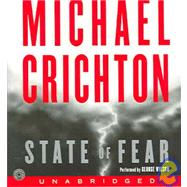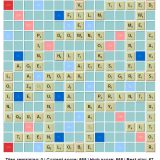Herod the Wicked

Watercolor by Barbara Dolphin
The Bible tells us that after Jesus was born, wise men from the East saw the star and looked for the promised Messiah. They stopped to ask Herod, “Where is the new born King?”
The Bible also tell us:
Then when Herod saw that he had been tricked by the magi, he became very enraged, and sent and slew all the male children who were in Bethlehem and all its vicinity, from two years old and under, according to the time which he had determined from the magi. Matt. 2:16 (NASB)
History also tell us this happened.
Macrobius (A.D. 395-423) wrote:
When he [emperor Augustus] heard that among the boys in Syria under two years old whom Herod, king of the Jews, had ordered to kill, his own son was also killed, he said: it is better to be Herod’s pig, than his son.”
What kind of monster kills babies? Apparently the kind that kills even his own son. Herod was a wicked man.
Herod was crowned “King of the Jews†by the Roman Senate in 40 BC in Rome. He was, however, a king without a kingdom.  Upon his return to the Land of Israel, he was given a Roman army and was eventually able to capture Jerusalem. The first order of business was to eliminate his Hasmonean predecessors. Mattathias Antigonus was executed with the help of Mark Antony and Herod killed 45 leading men of Antigonus’ party in 37 BC (Antiquities 15:5-10; LCL 8:5-7). He had the elderly John Hyrcanus II strangled over an alleged plot to overthrow Herod in 30 BC (Antiquities 15:173-178; LCL 8:83-85).
Herod continued to purge the Hasmonean family. He eliminated his brother-in-law, Aristobulus, who was at the time an 18 year old High Priest. He was drowned in 35 BC by Herod’s men in the swimming pool of the winter palace in Jericho because Herod thought the Romans would favor Aristobulus as ruler of Judea instead of him (Antiquities 15:50-56; LCL 8:25-29; Netzer 2001:21-25). He also had his Hasmonean mother-in-law, Alexandra (the mother of Mariamme) executed in 28 BC (Antiquities 15:247-251; LCL 8:117-119). He even killed his second wife Miriamme in 29 BC. She was his beloved Hasmonean bride whom he loved to death [literally, no pun intended] (Antiquities 15:222-236; LCL 8:107-113).
Around 20 BC, Herod remitted one third of the people’s taxes in order to curry favor with them, however, he did set up an internal spy network and eliminated people suspected of revolt, most being taken to Hyrcania, a fortress in the Judean Desert (Antiquities 15:365-372; LCL 8:177-181).
Herod also had three of his sons killed. The first two, Alexander and Aristobulus, the sons of Mariamme, were strangled in Sebaste (Samaria) in 7 BC and buried at the Alexandrium (Antiquities 16:392-394; LCL 8:365-367; Netzer 2001:68-70). The last, only five days before Herod’s own death, was Antipater who was buried without ceremony at Hyrcania (Antiquities 17:182-187; LCL 8:457-459; Netzer 2001:75; Gutfeld 2006:46-61).
Herod the Great became extremely paranoid during the last four years of his life (8-4 BC). On one occasion, in 7 BC, he had 300 military leaders executed (Antiquities 16:393-394; LCL 8:365). On another, he had a number of Pharisees executed in the same year after it was revealed that they predicted to Pheroras’ wife [Pheroras was Herod’s youngest brother and tetrarch of Perea] “that by God’s decree Herod’s throne would be taken from him, both from himself and his descendents, and the royal power would fall to her and Pheroras and to any children they might have†(Antiquities 17:42-45; LCL 8:393). With prophecies like these circulating within his kingdom, is it any wonder Herod wanted to eliminate Jesus when the wise men revealed the new “king of the Jews†had been born (Matt. 2:1-2)?
Right before he died, Herod realized nobody will mourn for him at his death. He hatched a diabolical scheme to make sure everybody will morn at his death, even if it was not for him. He ordered all the notable Jews from all parts of his kingdom to come to him in Jericho under penalty of death. He placed them in the hippodrome of Jericho and left instructions for the soldiers to kill all the notables upon his death (Antiquities 17:174-181; LCL 8:451-455; Netzer 2001:64-67). Fortunately, after the death of Herod, his sister Salome countermanded the order and released the Jewish leaders. Ironically, Herod died on the Feast of Purim and there was much rejoicing at the death of Herod the Wicked (cf. Esther 8:15-17; Faulstich 1998:110)!
Five days before he died, Herod executed his oldest son Antipater (Antiquities 17:187; LCL 8:457-459). During that time period he also executed, by burning alive, two leading rabbis and then executed their students for participating in the “eagle affair†in the Temple (Antiquities 17:149-167; LCL 8:439-449; Wars 1:655; LCL 2:311).















